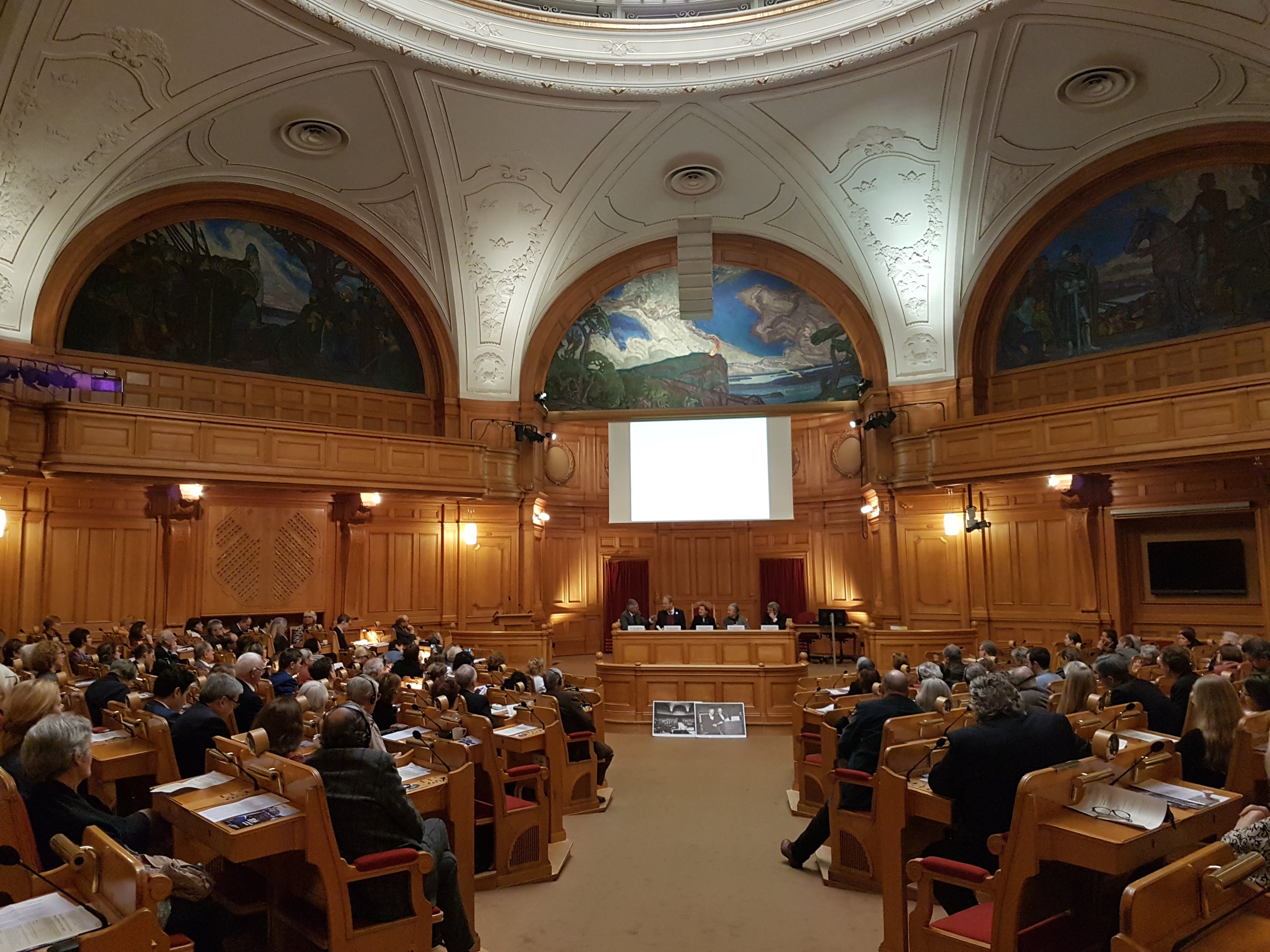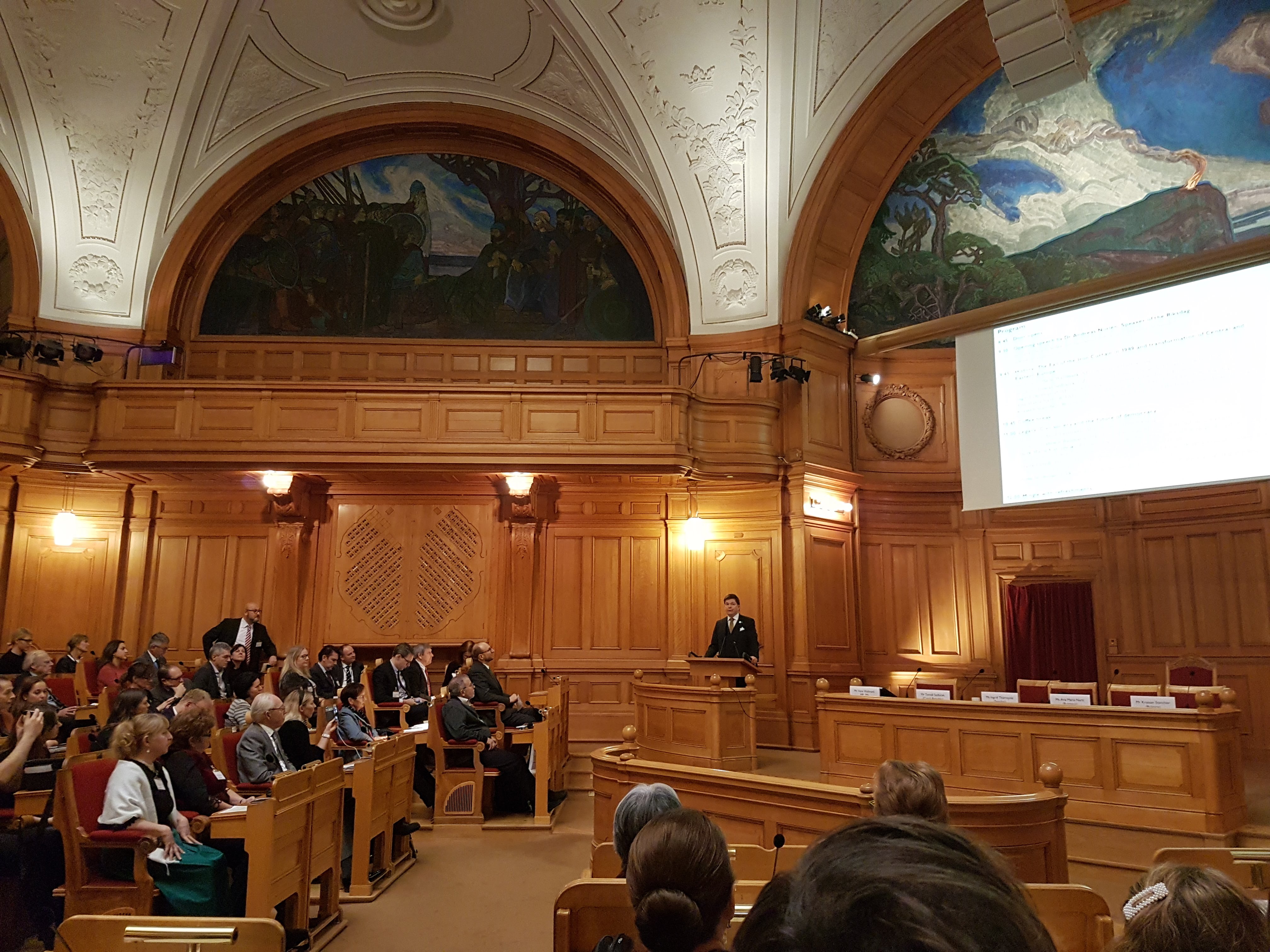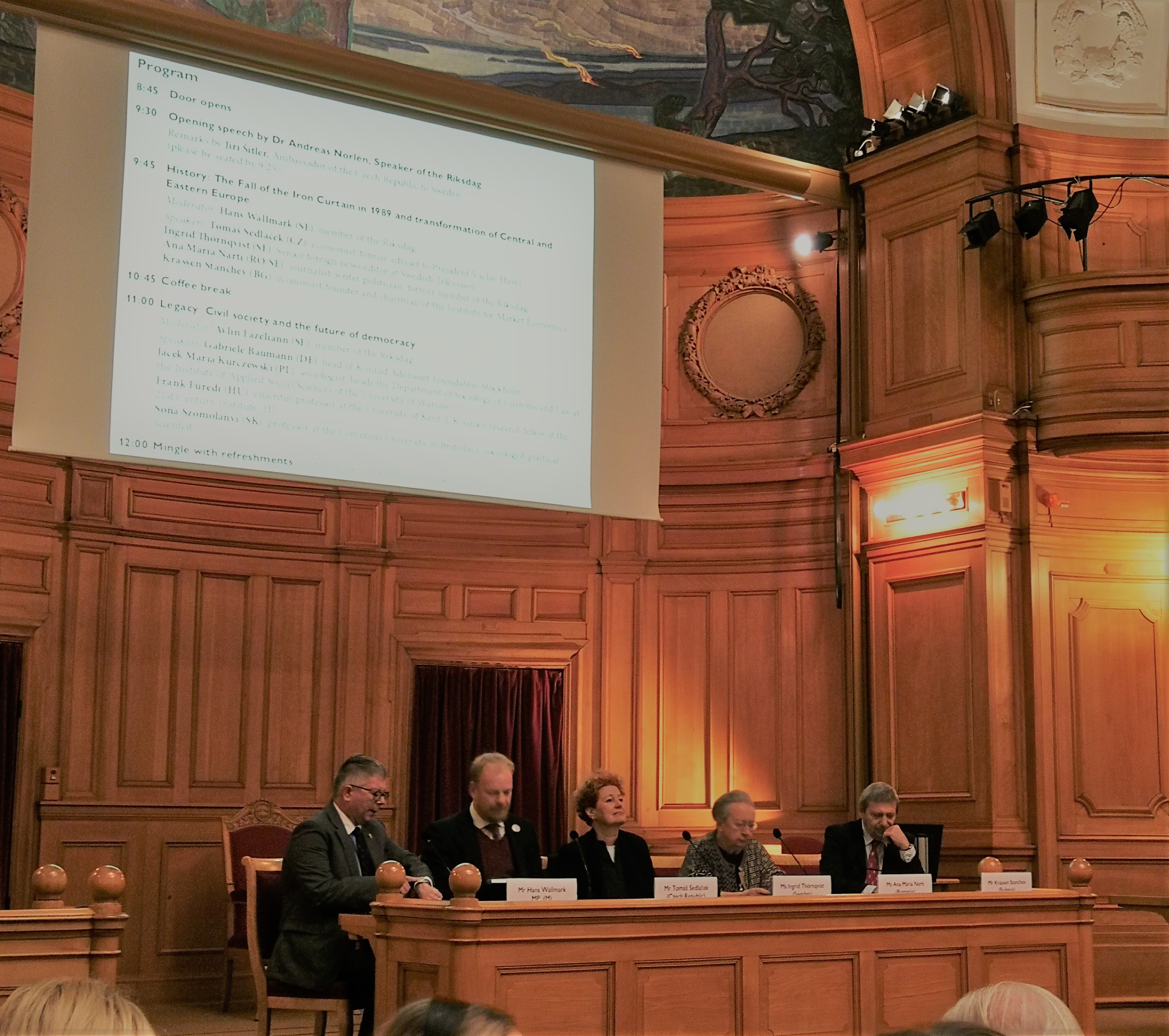International conference to mark the 30th anniversary since the fall of the Iron Curtain was held in Stockholm
27 November 2019 News
The profound transformation of the countries of Central and Eastern Europe, which started 30 years ago with the fall of the Iron Curtain, has unambiguously shown that freedom and democracy make the world a better place. Bulgaria, Czechia, Germany, Hungary, Poland, Romania and Slovakia did not get their freedom for free. They fought for it. Their struggle teaches us an important lesson that democracy is not something to be taken for granted. It is a priceless achievement of our societies, which we need to uphold together every day.” This is what the Speaker of the Swedish Parliament Andreas Norlèn highlighted in his speech at the opening of the international conference in Stockholm on November 27th to mark the 30th anniversary since the fall of the Iron Curtain.
The conference was jointly organized by the Swedish Parliament and the embassies in Stockholm of Bulgaria, Chechia, Germany, Hungary, Poland, Romania and Slovakia. The list of speakers included public figures from those countries, whose personal life is closely related to the events that led to the end of the Cold War and their research. Bulgaria was represented by Krassen Stanchev, chair of the Board and founder of the Institute for Market Economics (www.ime.bg) in Sofia, former member and committee chairman of the first democratically-elected Bulgarian Constitutional Assembly (1990-1991), member of the Bulgarian President’s Council on Economic Policies (1996-2001) and lecturer in Public Choice and Macroeconomic Analysis at Sofia University.
While highlighting the severe consequences of the imposition of the totalitarian communist regime and the resistance against it during the first years after the end of the Second World War, Krassen Stanchev stressed the key processes that led to the crash of communism and the onset of the democratic transition in Central and Eastern Europe and in Bulgaria in particular. On the one hand, it is the inability of the communist regime to provide economic prosperity and well-being for the citizens. On the other hand, it is the reborn aspiration for a restoration of human dignity and freedom of expression after decades of systematic repressions.
More than 250 people attended the conference, including members of the Swedish parliament, politicians, diplomats, scholars, researchers and representatives of civil society.


